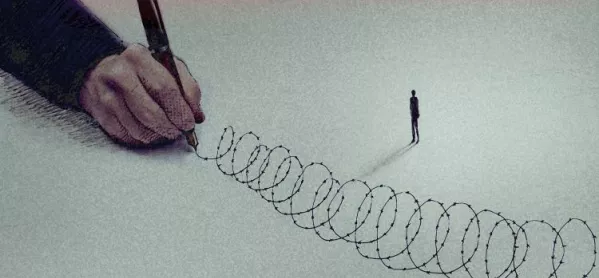- Home
- ‘Laura’s story shows the failure of our “sorting hat” schools’
‘Laura’s story shows the failure of our “sorting hat” schools’

Let me tell you about Laura. She joined the school long before my time. She had a difficult time in Year 7, as she was living in a women’s hostel with her mother and brother.
Laura was quiet and withdrawn, but presented no “disruptive” behaviour issues of any sort. She was a high attainer. She managed well.
And then she disappeared, one of those children who are rehomed and we think we will never see again.
But not this time. The family were rehoused by the council close to the school, and Laura’s mother was advised to change the children’s surname for their protection. Laura returned in Year 9, but with a different surname and her new teachers didn’t seem to realise that the girl in front of them was a former pupil. (Her form tutor and head of year had left the school.)
Changing circumstances
Laura soon discovered that she was in the bottom set for every subject except PE. Baffled and disappointed, she ploughed through the year, doing the best she could.
She was elevated to slightly higher sets in Year 10, but had missed crucial parts of the curriculum in maths and science. She headed towards her GCSEs on a very different trajectory to what she had been on in her first period of time with the school.
So what went wrong?
Let’s face it - the concept of educational “triage” is nothing new. I realise now that we were separated into three “ability groups” when I was at primary school in the 1970s. Those of us on the “top table” were nudged towards the practice papers designed for the 11-plus exam. Those on the “bottom table” were not even told about the exam. Those in the middle had a crack at it. None of them passed.
According to the ruthless logic of educational triage, pupils are categorised into those who will achieve anyway without extra input; the borderline cases who need intervention to achieve the magic grade (whatever that might be); and the hopeless cases who are… well, not worthy of additional input.
Don’t brand children ‘no-hopers’
I heard the phrase “no-hopers” emanating from the mouths of too many heads of department during my brief stint as a local authority adviser.
We do this despite strong evidence it is wrong to do so: both academically and morally.
The iniquities of setting have been addressed by Professor Becky Francis and her team at UCL.
Most schools try and get around the issue by claiming that sets are malleable, that children can freely move up or down. But how much movement is there in reality? In too many schools, it is minimal or non-existent.
However, when it is done, this takes a toll in terms of time and energy, and comes at a cost to the self-esteem and mental health of the children who are shuffled about like pawns on a chess board.
Individual response
What we should do is get away from setting altogether. And we should change our whole mentality while we are at it.
Laura’s story ends fairly well. She played the long game, and left our sixth form with very good A levels. Many of her teachers were astonished.
But she could have done so much better.
Laura told me she assumes the heads of department didn’t know who she was when they allocated pupils to sets. Her surname had changed and her address had changed. Her new teachers knew nothing about her. Everyone was just muddling through. She was invisible.
Pupils off the radar
Why didn’t the pastoral team do something? Laura was a pupil-premium student throughout her school career. But she hit the (very low) target grades that were ascribed to her following a mediocre set of key stage 2 Sats results attained when the family was in chaos. The school’s tracking system showed her to be “green”.
She was off the radar - quietly achieving her very low targets.
Why didn’t Laura’s mother do something?
She must have known Laura was in the wrong sets, but she did not feel able to interfere. She chose to trust her teachers to do the right thing, and focused on providing a secure home life, and managing the increasingly difficult supervised visits with Laura’s unstable father.
Thus Laura slipped through the net. Completely.
Lessons learned
Laura may be an extreme case, but she is one of many who are written off by the system and sorted into the band of “no-hopers” who will not help the school to achieve an exalted league table position.
We need to delete from our consciousness the triage mentality that tells us that some children are worth more than others. That some children will be fine, and they are not our top priority.
Of course, we are all doing what we can with increasingly scant resources. But we need to ditch the “sorting hat” mechanism. Let’s start believing that children’s potential is really not fixed and many of those “targets” we are working with are total bunkum.
Let’s start to move away from the data tracking that defines children rather than supports them.
The writer is a teacher in England who wishes to remain anonymous to protect the identity of those mentioned in this article
Keep reading for just £1 per month
You've reached your limit of free articles this month. Subscribe for £1 per month for three months and get:
- Unlimited access to all Tes magazine content
- Exclusive subscriber-only stories
- Award-winning email newsletters



